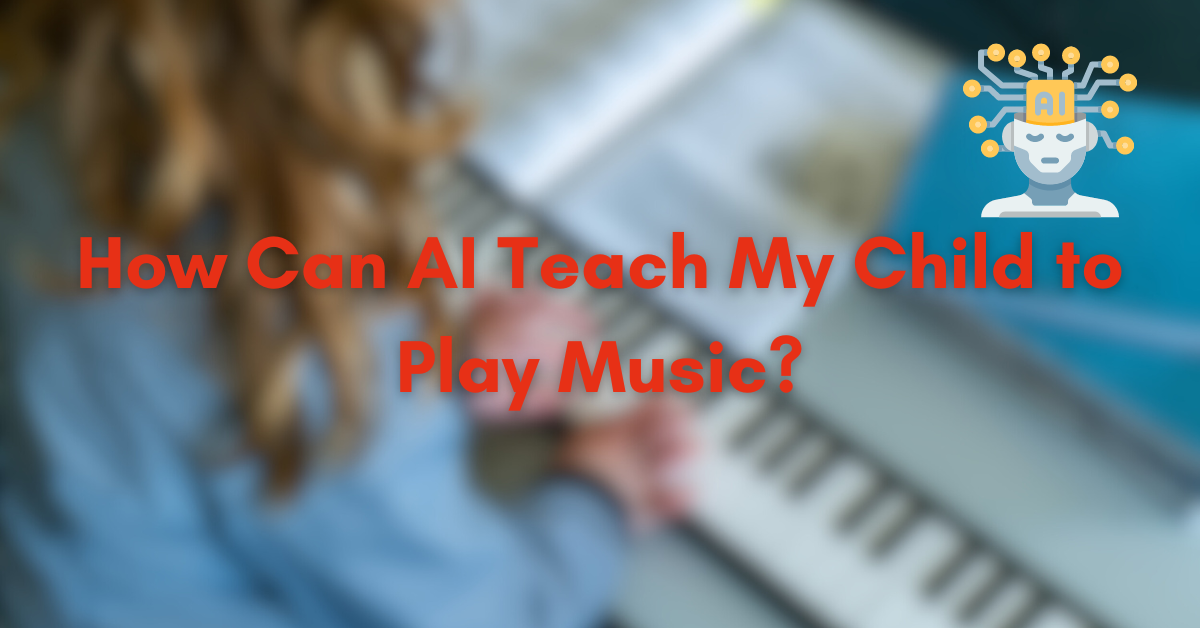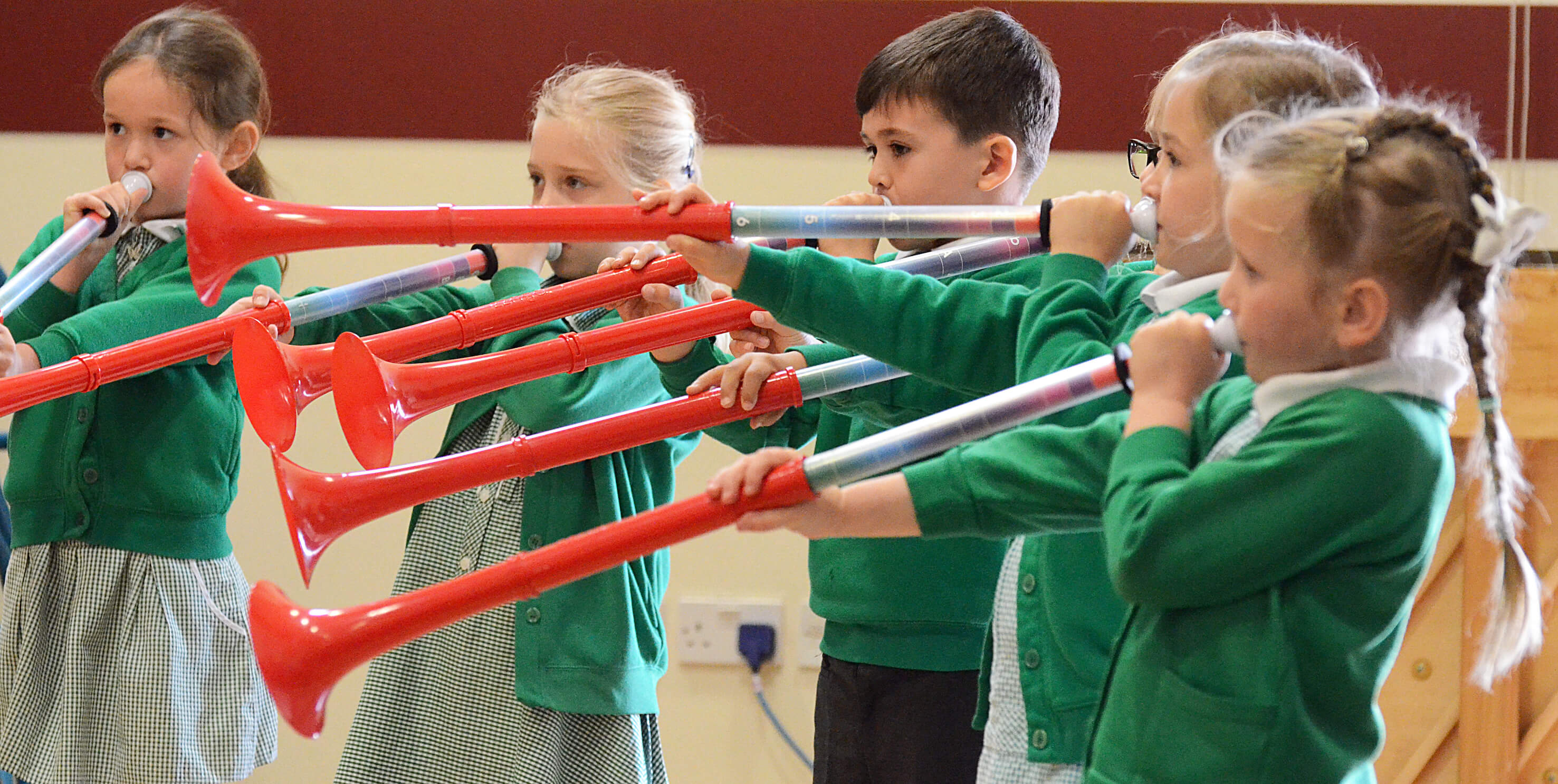
Unless you have been living under a rather large rock, you will have been hard-pressed not to hear about AI technology.
Whether it's writing apps such as ChatGPT or Jasper, or image generators like DALL-E-2, the powerful potential of artificial intelligence is being unleashed at an increasing pace.
In music, some of this technology has been utilised for a number of years. DJ software such as Serato can identify the key and BPM (Beats Per Minute) of songs in a matter of seconds. Mastering software such as LANDR can polish a track and turn a rough mix into a professional-sounding release.
This is great news for DJs and producers...but what does this mean for beginner musicians?
How can the advances in AI software help the next generation of musicians to develop?
Can AI be used by non-musicians to guide young children who are learning to play musical instruments?
At Warwick Music, we continue to track and keep up to date with the latest developments to help you start music smarter. Innovations in instruments come through new technology…whether it’s designing ultra-light, sustainable instruments or even creating the world’s first fully anti-microbial and carbon-neutral recorder.
That’s why we will be continuing to closely monitor the way that AI can be used by music educators, parents, children, and anyone involved in making music.
In this first article, we will be taking a closer look at how some apps are aiming to introduce children to learning an instrument using AI. We will also look at some free ways that you can experiment with software to help your child work on their musical chops.
What AI apps can teach my child to play music?
There are a number of popular apps that use technology to make learning fun. Here are a few popular examples:
Chordify
For musicians who understand the concept of chords, Chordify has some very neat features. Simply search the growing library of tunes, and you will find simple chord diagrams for guitar, ukulele, mandolin, and piano. Click the play button and you will not only hear the track of your choosing, but the chords will automatically shift in time to the beat!
You can even drop your own music into the software and Chordify can identify the chords that you are playing!
There are other useful features for beginners too, such as a "simplify" tab. This gives a more basic chord shape or pattern compared to the original recording.
Creating an account is free, although this only allows for a limited number of songs to be played each day. A subscription unlocks various premium features, such as the ability to transpose songs into another key, change the tempo, or even add a count-in.
Chordify would be a fun option for beginner keyboard or ukulele players. It's also a great choice for returning players, such as a parent who wants a simple guitar accompaniment that their child can jam along with.
Yousician
Yousician is one of a number of music learning apps that uses AI to give you instant feedback on your playing skills. Yousician offers lessons for singing, guitar, piano, bass, and ukulele. Follow along with the lessons and Yousician will provide you with tips to improve...all without any extra equipment. The built-in microphone in your phone, tablet, or computer is enough to listen and learn from all of the notes that you hit (and miss!)
The visual demonstrations of Yousician are less traditional than other music-learning software, using an engaging video-game display as opposed to traditional chord shapes. There are also artist courses from bands like Metallica.
Like Chordify, Yousician follows a paid subscription model, although a free seven-day trial is available for new users. There are a number of added features, including a Family Plan with four subscriptions. You could put together an entire band and teach the whole family how to play their favourite instruments!
Find out how Yousician's AI technology works in this explainer video:
Skoove
For keyboard players and pianists with potential, Skoove is another AI-powered learning app. Similarly to Yousician, AI is used to give players instant feedback, using machine learning to pick out correct and incorrect notes. Players lacking experience in musical notation can receive guidance with simple displays that show hand positions, much like the piano options in Chordify and Yousician.
Players can use acoustic pianos, electric keyboards, folding pianos...even your computer keyboard.
Skoove offers a free subscription with four starter lessons, while the premium subscription has more than 400 lessons. The premium tier also offers one-on-one support from Skoove's piano tutors, along with special courses and a monthly update of songs and lessons.
Check out this YouTube tutorial on how to learn to play Beethoven's Ode to Joy with Skoove:
What are the disadvantages of learning to play an instrument with AI?
Although technology is creating new opportunities for learning at home, there are still hurdles to overcome.
Currently, only a handful of musical instruments have dedicated learning apps. The examples above only cater for five instruments in total, including singing. For beginner brass players, starter string learners or woodwind wonder kids, there are limited options.
For some, the lack of human interaction in classes may cause issues with engagement and motivation.
The guidance of an experienced music teacher is often a vital starting place for learning to play an instrument. While AI can give children or adults an initial buzz for music, it's likely that some kind of human engagement and collaboration will still be needed for some time to come!

Some of the best moments of music-making are when we play with others. Whether it is children in the classroom or professional players performing for crowds of people, music is better shared.
AI learning platforms may be more suited to learning solo, but as more companies invest in this area of technology, we can discover even more ways to make more music...and more musicians.
If we engage with AI, we could be set for a golden generation of musicians!
- If some of these AI apps have got you in the mood for a digital piano, check out our keyboards buying guide.
- You can also read our article to discover seven beginner instruments for kids.
- Keep your eyes peeled on our blog for more updates on all sorts of instruments!
Adam is the Content Manager at pBone Music. This should mean that he’s the ideal person to write about himself, but he finds boasting in the third person a little awkward. He honed his word wizardry with a degree in English Language and Literature at the University of Leeds. He has since written copy for clients and businesses across the land, from awards to something beginning with “z”. He also spent a number of years as a musician. He has written pop songs and even jingles for kids, performed more first dances at weddings than you could shake a pBuzz at, and once played a gig for a pie company at The Etihad Stadium in Manchester. When he’s not reminiscing about those good old days, you might find Adam enjoying the football (although as an Everton fan, that can be difficult). He also loves spending time with his partner, Jen, and his family and friends, and sincerely hopes they feel the same way.
Topics: